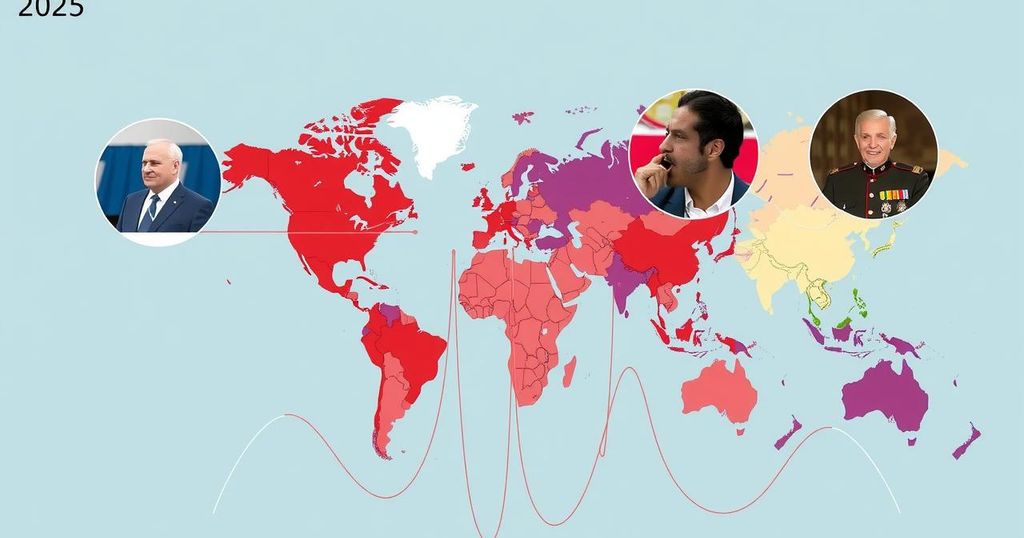Significant Global Elections Scheduled for 2025: Implications and Insights

In 2025, critical elections in Belarus, Germany, the Philippines, Canada, and Chile will address themes of inflation, populism, and international relations. Each election reflects unique domestic challenges, from authoritarian rule in Belarus to economic pressures in Canada, setting the stage for potential significant shifts in governance across these nations.
As the global political landscape evolves, several pivotal elections are scheduled for 2025 that could reshape governance in multiple nations. Key elections will occur in Belarus, Germany, the Philippines, Canada, and Chile, each influenced by unique domestic and international issues including inflation, the rise of populism, and geopolitical tensions. Belarus will witness the continuation of Alexander Lukashenko’s authoritarian rule, Germany faces a snap election following government instability, while the Philippines’ senatorial elections reflect President Ferdinand Marcos Jr.’s consolidation of power. In Canada, Prime Minister Justin Trudeau contends with declining popularity amid economic concerns, and Chile anticipates a competitive presidential race amidst debates over governance and societal issues.
The electoral events of 2025 reflect the ongoing struggles for power and governance across diverse political contexts. In Belarus, the election is characterized by political suppression, highlighting the challenges of authoritarian regimes. Germany’s unexpected snap election stems from coalition fractures amid pressing economic challenges. The Philippines’ midterm elections track the ruling party’s influence while Canada’s electoral dynamics hint at shifting political trends in response to economic and social pressures. Chile’s complex electoral environment showcases the difficulty of political consensus in light of recent upheavals.
The elections of 2025 hold significant potential to alter the political trajectories of Belarus, Germany, the Philippines, Canada, and Chile. Each nation’s political landscape is shaped by pressing issues such as economic instability, authoritarianism, and social unrest. Observers will keenly await the outcomes, as they will likely influence not only national policies but also international relations and geopolitical dynamics.
Original Source: www.ndtv.com







